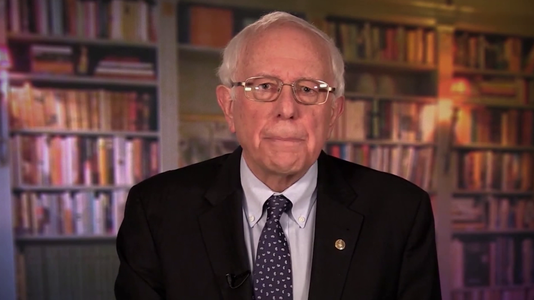Attorney General William Barr may announce as early as next week the end of special counsel Robert Mueller’s Russia investigation. The politically-charged probe into the Russian attack on the 2016 election has loomed over President Donald Trump for two years. The panelists discussed the potential impact of the report’s release, along with the investigations into President Donald Trump. The group also previewed the president’s upcoming trip to Vietnam to meet with North Korea’s Kim Jong Un.
Full Episode: The latest developments in the Mueller report
Feb. 22, 2019 AT 9:45 p.m. EST
TRANSCRIPT
Notice: Transcripts are machine and human generated and lightly edited for accuracy. They may contain errors.
ROBERT COSTA: The Mueller report looms at home as the president looks abroad. I’m Robert Costa. Welcome to Washington Week .
The special counsel’s report into Russian election interference could be completed in weeks according to multiple reports, but the Justice Department isn’t confirming anything. But what will be released to the public?
PRESIDENT DONALD TRUMP: (From video.) That’ll be totally up to the new attorney general. He’s a tremendous man.
MR. COSTA: And as Mr. Trump’s former attorney prepares to testify before Congress, a sweeping story raises questions about the president’s conduct. Plus, President Trump looks to cut a deal with North Korean leader Kim Jong-un and seeks a win.
PRESIDENT DONALD TRUMP: (From video.) Prime Minister Abe of Japan gave me the most beautiful copy of a letter. He said I have nominated you respectfully, on behalf of Japan; I am asking them to give you the Nobel Peace Prize.
MR. COSTA: We cover it all next.
ANNOUNCER: This is Washington Week . Once again, from Washington, moderator Robert Costa.
MR. COSTA: Good evening. The Justice Department is a powerful but tight-lipped institution. That has been especially true with the Russia investigation. But on Friday a senior DOJ official spoke out. They said Special Counsel Robert Mueller would not be submitting his report to the department next week, full stop. That statement capped off a frenzied week in Washington following several reports that Mueller could be wrapping up. Regardless of the timing, the Mueller report still hovers over the Trump presidency and Congress. President Trump was asked on Friday if he has spoken with Attorney General William Barr about the probe.
PRESIDENT DONALD TRUMP: (From video.) I have not.
REPORTER: (From video.) Do you expect to?
PRESIDENT DONALD TRUMP: (From video.) At some point I guess I’ll be talking about it. But you know the nice part? There was no collusion, there was no obstruction, there was no anything, so that’s the nice part. There was no phone calls, no nothing. We have a – I won a race. You know why I won the race? Because I was a better candidate than she was, and it had nothing to do with Russia.
MR. COSTA: Joining me tonight, Mark Mazzetti, Washington investigative correspondent for The New York Times ; Amna Nawaz, national correspondent for the PBS NewsHour ; Molly Ball, national political correspondent for TIME Magazine; and Philip Rucker, White House bureau chief for The Washington Post .
Mark, you’ve been following this with The New York Times all week, the timing of the Mueller report, the DOJ pushback on Friday on all the speculation. Where does it stand, and what do we know about when it actually will come out or head to the Department of Justice?
MARK MAZZETTI: So, as usual, we don’t know exactly, and you know, any prediction about when exactly the Mueller report will land would be foolish. But it does for the first time feel that we’re in an endgame here, that Mueller will deliver a report sometime in the coming weeks. A lot of people have reported that. And he’s wrapping up his work, and –
MR. COSTA: What gives you that feeling, though, based on your reporting?
MR. MAZZETTI: There is multiple sources that we have that – and others have reported as well that he is preparing to turn it over. The Justice Department is preparing for him to. The Justice Department regularly checks in with the special counsel investigation, every two weeks or so, and they have the sense that this is indeed coming to an end. But when in fact it does end again – it won’t be next week. It may not be the week after. But we do think this is not going to be another six months. It’s probably going to be shorter than that, maybe possibly even a month. So it does – you know, there could be also even more shoes to drop. But it is something that we’re – are certainly waiting for. And, you know, we think that it’s going to be – there’s going to still be more revelations.
MR. COSTA: Amna, part of the reason for all the speculation and the reporting – CNN, The Washington Post , The New York Times , and others – is that you have a new attorney general in William Barr. And you also have the Deputy Attorney General Rod Rosenstein preparing to exist sometime around March. There’s a new culture, a new staff at DOJ.
AMNA NAWAZ: That’s right. And I think, you know, look at the – Mark (sic; Matt) Whitaker earlier giving us a hint and saying that we’re getting close to an end. You know the big joke going around now, that the more we say it’s close to ending at some point we’re eventually going to be right. So, yeah, look, we know the scope of the people that they’ve talked to. All signs point towards something being wrapped up. But what we don’t know, and this is the key part, is what happens when it is done. Because it being done does not mean that we actually know what’s in it. We know what the DOJ guidelines dictate it goes directly to this new attorney general. The big question is what is he going to do with it?
Now, he hinted at what he might do, right? He said he’s not leaning towards releasing it in full. He said that in his Senate confirmation hearing. And we also know that he agreed with his predecessor’s decision to recuse himself – that was Jeff Sessions saying I want nothing to do with this, I’m going to step away from this. That’s not a great sign for the president. So the new attorney general holds a lot of power. It’s kind of a baptism by fire in this first week. And we know the president’s been complimenting him. He knows he holds that power.
MR. COSTA: Well, let’s stay with that, because when Robert Mueller completes this report he will submit it to the attorney general. And, Phil, in your story about Barr – who once served as attorney general under President George H.W. Bush – you wrote, quote, “Barr is laboring to maintain his reputation as a relatively independent and principled leader, while simultaneously reacting to pressure from his boss who demands loyalty from his appointees.” What a test for Barr. What can you tell us about how he’s going to handle this moment?
PHILIP RUCKER: Well, Bob, he’s kept a very low profile, Barr has, in this first week on the job. He’s had some public praise from President Trump, but the president also has been taking aim at other people who have led the Justice Department – Andrew McCabe, the former acting FBI director, Jim Comey, the former FBI director, Rod Rosenstein. He’s been all over Twitter talking about the Department of Justice. And it’s created an awkward position for Bill Barr, because he’s trying to lead this agency to establish some independence from the White House, without getting crosswise with the president. And the big test is going to be when Mueller presents that report, what does he decide to do? How much information does he share with Congress, and therefore with the public? And he’s going to be under a lot of pressure from a lot of different directions.
MR. COSTA: Molly, when you think about the Attorney General Bill Barr, do you see a seasoned man of institutions or do you see the man who wrote that 19-page memo, unsolicited, to the attorney general and the deputy attorney general talking about protecting executive power? Who is the real Bill Barr?
MOLLY BALL: Well, it’s obviously both. He is both of those people. But looking back on his confirmation hearings, you know, he was confirmed 54-45, almost a party-line vote, with many Democrats voicing dissatisfaction particularly with what they felt was a lack of transparency, particularly his refusal to commit to releasing that report publicly. But behind the scenes you heard even a lot of Democrats feeling like he’d done a very good job of reassuring people of his independence, impartiality. As Phil said, presenting a very strong impression of someone who had – who had nothing to lose. He kept saying that, you know, he really had – he wasn’t trying to get anywhere else in his career, and therefore that would give him the freedom to stand up to the president, if need be.
And we know that he talked about this his confirmation hearings. He actually is quite close personally to Robert Mueller. They are friends. And he has utmost respect for him. And he used the word “inconceivable” about the possibility that he would ever see cause to get rid of Mueller. So I think even some of those Democrats who voted against him felt like he was about the best they were going to get from a nominee by President Trump. And people will be very surprised if he then, you know, pivots to somehow helping the president with the witch hunt narrative, for example.
MR. COSTA: When you think about the Barr decision and the Mueller report, part of the frenzy this week wasn’t just about the timing of the report. It was also about what’s going to be in the report. And Mark and his colleagues at the Times published an in-depth account of what they called the president’s, quote, “sustained and secretive assault on the machinery of federal law enforcement and his war with investigations.” He said the team spelled out example after example of how the president has tried to undermine and discredit not just the Mueller probe, but the investigation by the Southern District of New York into hush money payments in 2016.
What’s striking about your article and why it kicked of this – a lot of this discussion this week about the Mueller report is it underscored the obstruction side of this whole situation. Not just the collusion and the Russian interference, but the obstruction. And that could be a real specter for this White House.
MR. MAZZETTI: Absolutely. We know that Mueller is investigating Trump for possible obstruction of justice. And what we set out to do was kind of bring things together in a way, because this is so common for us now. We are used to the president railing against the FBI, the Justice Department, against Robert Mueller and his investigators. And so much so that we’re no longer shocked by it. And so we thought that bringing these instances together to show this sort of two-year war on the law enforcement machinery would show the – what kind of Mueller might be looking at in such a case.
And I mean, this goes back to Barr. And this is one of the challenges he has. Not only does he have to work for Trump, but it’s now embedded in a lot of the American culture, this idea that the deep state is out to get the president, the FBI is bad, the DOJ is bad. And this is extraordinary, especially for a Republican president. And yet, Barr is considered a – you know, he’s a respected prosecutor. He’s got to buck up the troops at the FBI and the DOJ, and to sort of show that, you know, they are not out to get the president. And so when we wrote this story, we wanted to just remind people that this is not normal. A president talking about federal investigations into him, and doing it so commonly and so aggressively, is something we’ve never seen before in American history.
MR. COSTA: Where is the president’s legal team getting ready for all this, this firestorm on the horizon?
MR. RUCKER: Well, the president’s personal legal team, as well as the lawyers and political operatives inside the White House, are preparing for the Mueller report. And they have a series of strategies laid out based on different contingencies of what the report could find, ranging from sort of not reporting much of anything about the president, to actually laying out sort of a bill of goods that House Democrats could then begin impeachment proceedings on. They’re going to have an aggressive response. There’s some dispute about how much detail they’ll get into in their response. But they’re prepared for it, and they’ve been prepared for it to happen even next week while the president’s overseas. Although, we now know from the Justice Department that it’s not going to happen next week.
MR. COSTA: But there are other clouds, Amna, on the horizon. You’ve got the president’s former campaign chairman, Paul Manafort, who was convicted of eight felonies and pleaded guilty to two more. He may not be able to escape prison time, even with a presidential pardon. Prosecutors in New York have prepared a criminal case against the 69-year-old on a range of tax and other charges. The Manhattan district attorney is reportedly ready to file the charges, if President Trump exercises his power to pardon his former aide. So maybe the president’s legal team, they’re trying to get ready for the Mueller report, but all these other clouds are there, including Paul Manafort. Even if he’s pardoned, he could face charges in Manhattan.
MS. NAWAZ: That’s absolutely right. And all of that is increasing tension on the president the closer we get to a potential end to this report. Look, even if it stopped right now I think it’s worth looking back at what the Mueller investigation has been able to yield so far. You’ve got guilty pleas from some of the most closest and long-time associates to the president, dating back to the early days of his campaign, Manafort among them. His deputy chairman. His personal attorney. Criminal charges against Roger Stone as well. That’s an incredible amount of smoke. We don’t yet know where the fire is.
But all of these things mean that there’s more pressure on the president right now. And it’s kind of remarkable the investigation’s gotten as far as it has. As Mark mentioned, the sustained public pressure by the president undermining the results before they have even come out, those are going to have an effect on how I think AG Barr decides to eventually release whatever he does, in whatever form.
MR. COSTA: Doesn’t – Mark –
MR. MAZZETTI: No, I was going to say, and in addition to Mueller, right, these other investigations. If you talk to people who are on the legal team or close to the president, the thing that they seem even more concerned about is the Southern District of New York investigation, the one Michael Cohen’s been wrapped up in, and one where the president is effectively an unindicted co-conspirator where, you know, Cohen said that he directed hush money payments before the election. This is real legal jeopardy for the president. Maybe not while he’s in office, but perhaps when he’s out.
MR. COSTA: But, Molly, is it political jeopardy? Michael Cohen will head to Capitol Hill next week, Wednesday, while the president’s abroad to testify. The DOJ has said Cohen can’t talk about the Russia investigation or the Trump Tower Moscow project, but he can talk about the president’s conduct. Do voters care? Do Republican voters care? Could they turn? We know Maryland Governor Larry Hogan’s thinking about a primary challenge. Could we see the Republicans twist and turn in the wind? Will the Democrats use this as their main issue in 2020?
MS. BALL: Well, a lot depends on what’s in that report. The Democrats in Congress have taken a very firm stance that they are not going to go forward with impeachment in particular, but a lot of – they’re waiting on the Mueller report, in part – mostly because they think that’s safer political ground for the American people to trust that something is coming out that isn’t a political document, that is relatively unbiased, even if, you know, the president has tried to turn Bob Mueller – a Republican – into a political actor who is somehow engaged in a conspiracy against him. He is not viewed that way, I think, by most – by most people, and certainly most people in Washington or in – or in Congress. But you know, the president’s legal strategy has largely been a political strategy. To Phil’s point, this is the groundwork they’ve already been laying, and the Times story talked a lot about this as well, the – and we’ve written about this also – the pivot that was made in the president’s legal defense to turn from a cooperative stance to this aggressive public relations strategy. And the – and you know, Rudy Giuliani has said this out loud explicitly, shockingly enough, that this is all about making impeachment impossible. This is all about putting pressure from the Republican base on Republican members of the Senate so that they don’t feel like they could vote to convict the president in an impeachment proceeding; that – and that is the beginning and the end of it. So if the president starts to lose those Senate Republicans – we’ve seen them starting to rebel on other matters; we’ve seen them starting to rebel on foreign policy, we’ve seen them starting to rebel when it came to the shutdown – if he – if they feel that they are free enough from the pressure from the president’s base that they can take action against him, then he’s in real trouble.
MR. COSTA: And Congress will have to make the decision on impeachment, Mark. So much of it’s going to depend on what’s in this report. You could see William Barr decide to classify material and not release a lot of that to Congress. You could see the Department of Justice decide not to include a lot of bad facts they found during the investigation because ultimately they decided – if they decide this – to not indict President Trump or to not indict someone close to him.
MR. MAZZETTI: Right, I mean, the actual parameters of what Mueller can do are somewhat narrow, and so that’s why no one is expecting a hundreds-and-hundreds-page report like the Starr report, right, or the 9/11 commission or something like that, that tells the full story. However, you know, there is an expectation it’s going to be more fulsome than what Barr sends to Congress.
Now, I am entirely certain that the entire Mueller report will come out in some capacity. It is too important a document.
MR. COSTA: Mueller must know that too.
MR. MAZZETTI: And I believe that he does, and I believe that they’re probably writing a report with the knowledge that it will and they’re probably being – this is speculation, but – careful about the classification, and they’re not putting highly classified information in because they expect it to leak. I believe it will, somewhere. And so this document, the stakes are too high for everyone to speculate what did Bob Mueller actually find out.
MR. COSTA: The obstruction question politically, how do you see it? Is this something that the Republicans are going to turn away from the president on, or do they rally behind him?
MS. NAWAZ: It’s going to be sort of a come-to-Jesus moment for a lot of Senate Republicans, and this may be where the rubber meets the road for them. And we know that is one of the central questions, right? One of the things that struck me about the many interviews that Andrew McCabe has been giving this week is the revelation that they did launch an individual counterintelligence investigation into the president, and he noted actually yesterday in his interview with Judy Woodruff when she drilled down of a part of his book where he said we reached a point in our investigation into Russian interference in the election where we said, OK, we’ve been looking at the campaign since summer of 2016; it’s time for us to look at earnest into the candidate, and that is the man himself. And if you go back to that time of cooperation between the Mueller team and the president’s lawyers, there were those leaked documents of questions that they wanted responses from from President Trump, and those were the central issues: What did you know about Russian interference, when did you know it, and what if anything did you do to obstruct the investigation into those things? So at the very least we will expect answers or what Mueller believes to be true in the report.
MR. COSTA: Phil, final thing on the Mueller report. We see the president during these pool sessions where the reporters come into the Oval Office and he’ll say a few words, and that gives us a glimpse into how President Trump is handling this political moment, this legal moment. But based on your reporting talking to top officials, what’s it actually like right now inside of the West Wing?
MR. RUCKER: You know, the president is much more concerned about it than the people around him in the White House, and you can see it in the tweets that he fires off, in the comments that he makes to reporters all the time. It’s been this cloud that has hovered over his presidency for two years now and he’s anxious about it. He’s unsettled by it. And you know, the advisors are concerned too, but at the end of the day this is about the president and it’s about the campaign. And as much as they can prepare for things and create a strategy, it all depends on what he’s going to end up doing. And does he – does he blow a gasket when the report comes out? We’ll have to see, but there’s nothing they can do to prepare for that.
MR. COSTA: As Washington and the president wait for that Mueller report, President Trump will be traveling to Vietnam for his second summit with North Korean leader Kim Jong-un. The first summit, in Singapore last June, produced an aspirational statement but no concrete commitments. Since then North Korea has dismantled an aging missile testing site and stopped nuclear tests. The United States suspended its joint military exercises with South Korea but has not lifted sanctions.
PRESIDENT DONALD TRUMP: (From video.) Sanctions are on in full. As you know, I haven’t taken sanctions off. I’d love to be able to, but in order to do that we have to do something that’s meaningful on the other side. But Chairman Kim and I have a very good relationship; I wouldn’t be surprised to see something work out.
MR. COSTA: Molly, are we looking at a major deal here, something to end the Korean War, to denuclearize, or it’s going to probably be a small-ball situation?
MS. BALL: If there’s a big deal being prepared behind the scenes it’s not something that we’ve heard about so far. And what we’ve seen with these types of negotiations, summits that the president has done, is that he doesn’t do it the traditional way where you have a lot of your diplomats meet with their diplomats and do – lay all the groundwork behind the scenes so you just have this nice thing to release with a bow on it when you get there. It’s very much about the two men themselves being in that room together and having that great relationship.
Now, the questions that have been raised have been mostly about who is that great relationship actually good for, right? Is the United States giving more than it’s getting? Is it – is it Chairman Kim who’s really benefiting the most from this arrangement? The Koreans have given some things up, but I think there’s a lot of pressure on this summit to produce real results, not just a friendly handshake. And I don’t think we’re going to know whether that’s possible – whether the president can drive a hard bargain until the summit happens.
MR. COSTA: Amna, the president seems to have this position – he’s told it to reporters – that he wants to not see further tests on the nuclear side from North Korea, but his intelligence officials have testified that they kind of accept that North Korea’s not going to get rid of its weapons, that Kim Jong-un needs those weapons to keep hold on power in his country.
MS. NAWAZ: A key tension point in these talks forever has been how do we define denuclearization, and we haven’t reached consensus on that. The U.S. and North Korea are not on the same page about that yet. When you look back to what happened in June of last year, as Molly mentioned, a lot of symbolism, not a lot of substance. So the bar is higher this time around. They’ve got to come away with something. President Trump has continued to say that that good relationship means the threat has receded, and we know that it has not. His own intelligence chiefs have told him it has not. This is still a country that has anywhere from 20 to 60 nuclear weapons. They still have the potential for their intercontinental ballistic missiles to potentially reach the continental United States at some point. So the threat is very much there. What’s happened in the meantime, though, when we’re building this one-on-one relationship between the two leaders, is you’ve given Kim leverage. A lot of people are saying there’s not a lot of incentive for him to want to give anything up right now. He’s at the center of gravity, and meanwhile you have other regional players saying, well, if there’s a one-on-one relationship there, maybe I can start mine too. He’s had three or four meetings with the Chinese president, with the South Korean president over the last year. Russia has restarted gas pipeline talks on the peninsula. There’s folks in there trying to gain influence, and none of that is good for the United States.
MR. COSTA: Phil, you’re going to be heading to Vietnam. I think it takes a few days for you to get there with all your connecting flights.
MR. RUCKER: (Laughs.) It does.
MR. COSTA: I saw Phil piling up all his travel plans; not an easy trip to Vietnam. You were in Singapore as well for the first summit.
MR. RUCKER: Yeah.
MR. COSTA: And one of the details I always remember from your reporting then is this video the U.S. produced trying to almost – trying to sell Chairman Kim.
MR. RUCKER: A propaganda video, yeah.
MR. COSTA: Propaganda video about capitalism and about making North Korea a destination for tourism. Is that part of the pitch we’re going to hear again?
MR. RUCKER: Very much so. In my reporting this week leading up to the trip, advisors in the White House say Trump is fixated on selling North Korea as an economic hotspot, as sort of a potential tourist magnet in that part of the world, and making the case to Chairman Kim personally from someone who’s been a successful real estate developer in New York you’re sitting on a goldmine here; if you open up North Korea to the West you could have hotels, you could have golf courses on the cliffs, you could – you could draw in people from Beijing, from Seoul, from Tokyo, these bustling economies, and make that pitch to Kim. And Kim seems – you know, Trump thinks Kim would be receptive to that because he is sort of dazzled by aspects of American culture, by our movies, by our basketball, by the riches of the U.S. And so that’s the core here for Trump.
MR. COSTA: And as the president’s abroad, the investigations are still there. We’ve seen presidents in the past, Mark, from Richard Nixon on, turn their eye abroad as they face challenges here at home. Could this be an out for President Trump, foreign policy, in this part of his first term?
MR. MAZZETTI: Well, it certainly is something that he seems committed to, and the sort of Trump the dealmaker seems to want to make a splash in this summit, right? And that could be problematic from the perspective of State Department officials, intelligence officials, if he tries to sort of broker a peace deal that could hurt the denuclearization. But the investigation’s not going away.
MR. COSTA: It’s not going away and this show’s not going away, don’t worry about it. Thanks, everybody. We have to leave it there. Our conversation continues on the Washington Week Extra, and I meant it when I said we’re not going away because starting tonight we will now stream the Extra live on our website, YouTube, and Facebook stating real soon – 8:30 p.m. Eastern – every week. Join us.
I’m Robert Costa. Have a great weekend.
MOST POPULAR

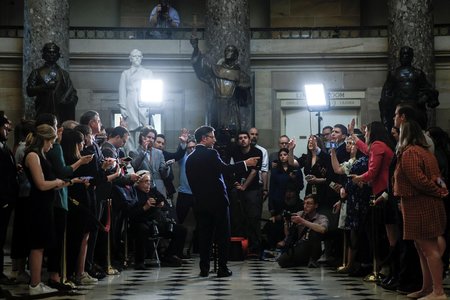
Full Episode: Washington Week with The Atlantic full episode, 4/19/24

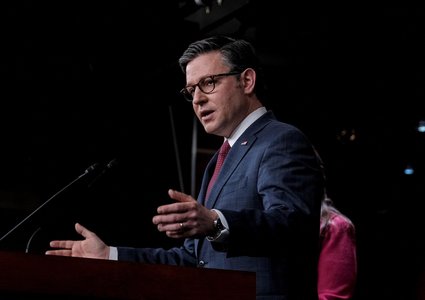
Clip: Will Democrats rescue Johnson's speakership to protect aid for Ukraine and Israel?

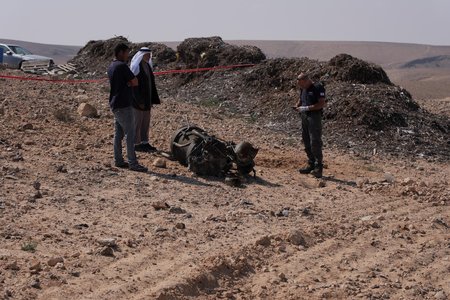
Clip: Attacks in Israel and Iran bring more uncertainty to Middle East
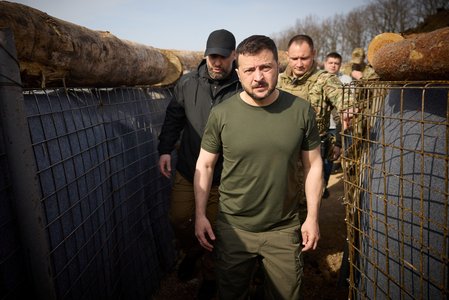
Preview: Coming Up on Washington Week with The Atlantic

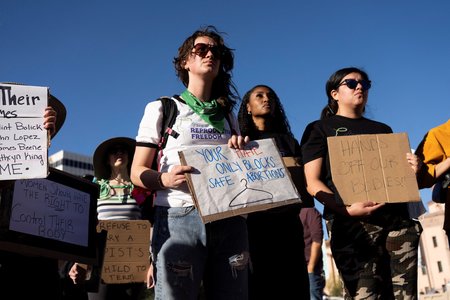
Full Episode: Washington Week with The Atlantic full episode, 4/12/24

© 1996 - 2024 WETA. All Rights Reserved.
PBS is a 501(c)(3) not-for-profit organization
